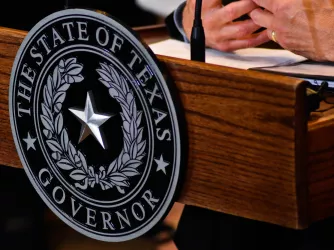Table of Contents
Southeastern Louisiana University Drops Security Fee Policy Following Fifth Circuit Ruling
Sara Lipka of the Chronicle of Higher Education reports today that Southeastern Louisiana University (SLU) has shelved its security fee policy for non-university speakers after the United States Court of Appeals for the Fifth Circuit found it unconstitutional in a ruling issued last week. The case was Sonnier v. Crane, No. 09-30186 (5th Cir. July 27, 2010).
SLU's former policy granted administrators "sole discretion" in determining security needs for speaker events, and then permitted administrators to pass that financial burden on to the student group bringing the outside speaker to campus. However, this kind of fee system was found unconstitutional by the Supreme Court in Forsyth County v. Nationalist Movement, 505 U.S. 123 (1992). In Forsyth County, the Court invalidated a Georgia county's ordinance that allowed local government to set fees for events based on anticipated security needs. Striking down the ordinance on First Amendment grounds, the Court observed that "[t]he fee assessed will depend on the administrator's measure of the amount of hostility likely to be created by the speech based on its content. Those wishing to express views unpopular with bottle throwers, for example, may have to pay more for their permit." As a result, the Georgia county ordinance had the effect of punishing speakers because of the content of their speech—and as the Forsyth Court made clear, "[s]peech cannot be financially burdened, any more than it can be punished or banned, simply because it might offend a hostile mob."
The same problem plagued SLU's security fee policy. As Erica discussed in a Torch entry earlier this week, the Fifth Circuit correctly found that Forsyth's holding rendered SLU's policy unconstitutional:
The Fifth Circuit rightly applied Supreme Court jurisprudence governing speech protections in security fee cases to the university setting, and held that university administrators cannot possess "unbridled discretion" when making security fee determinations. Instead, the university must rely on "objective factors" in assessing security fees, to ensure that universities do not discriminate against certain viewpoints.
We're pleased to see Southeastern Louisiana University comply with the Fifth Circuit's unequivocal holding and scrap its unconstitutional policy. In so doing, SLU becomes just the latest college or university to rescind an unconstitutional security fee policy; FIRE's efforts have resulted in similar policies being rescinded at the University of Colorado at Boulder, the University of California at Berkeley, the University of California at Los Angeles, the University of Arizona, University of Massachusetts Amherst, and Temple University.
Pointing out FIRE's defense of student organizations at a number of these schools, the Chronicle article notes that the Fifth Circuit's ruling may prove influential in other cases involving colleges' security fee policies. FIRE will work hard to make sure that it is.
Recent Articles
FIRE’s award-winning Newsdesk covers the free speech news you need to stay informed.

Gov. Greg Abbott’s order ‘hardening state government’ against China is dangerously hard to parse

Right, left, and in-between: Can we bring our differences to the table?

From the UK to Germany to Singapore: Police are watching what you post
